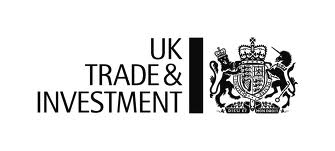Nigeria’s total trade with the United Kingdom has plummeted by 25% in the first quarter of 2024 despite the higher value realised from the Naira devaluation. This is according to the recent foreign trade statistics report by the National Bureau of Statistics (NBS). The total trade between Nigeria and the UK dropped from N602.36 billion in Q1 2023 to N451.45 billion in Q1 2024. This represents a significant year-on-year (Y-o-Y) decline of 25%. When compared to the previous quarter (Q4 2023), where the total trade was N522.79 billion, there is a quarter-on-quarter (Q-o-Q) decrease of 14%. The steep decline in Nigeria’s trade with the UK is concerning, especially given the context of the weak Naira. Typically, a weaker Naira would make Nigerian exports cheaper and more competitive internationally, theoretically boosting trade figures. However, the data indicates that other factors are likely contributing to the decline.
A closer look at the data reveals that both imports and exports have experienced declines. Nigeria’s imports from the UK decreased from N186.99 billion in Q4 2023 to N183.34 billion in Q1 2024, marking a 2% Q-o-Q decline. However, year-on-year, the imports increased by 25%, up from N146.88 billion in Q1 2023. Regarding exports, there was a more substantial drop, which dragged the total trade numbers down. The export value fell from N335.8 billion in Q4 2023 to N268.11 billion in Q1 2024, showing a 20% Q-o-Q decrease. On a year-on-year basis, exports plummeted by 41%, down from N455.48 billion in Q1 2023. The UK was a major destination for re-exports, as the NBS data shows that N43.49 million interchangeable tools; N2 million articles of iron/steel; N1.97 billion treating metal; N2.18 million machines for voice, images or data; and N1.45 million household articles were re-exported in Q1 2024. Also, food preparation items worth N1.8 billion were exported to the UK in this quarter. Some of the products imported from the UK in Q1 2024 include N11.77 million worth of granite and N15.93 billion worth of heat exchange units.
In the quarter under review, the United Kingdom had planned to enter into new economic and trade partnerships with Nigeria to facilitate new opportunities in sectors such as energy, legal and financial services. This was also around the time the UK was battling to exit a recession that hit the economy, as its Gross Domestic Product (GDP) declined by 0.3% in Q4 2023. Although the UK’s economy ended the shallow recession by first quarter of 2024, as its GDP expanded by 0.6%, the economy became stagnant by April 2024 in a blow to Prime Minister Rishi Sunak and the Conservative Party ahead of an election. The struggle with the recession coincides with the UK’s visa policy revisions, especially for international students. The UK government recently introduced higher education reforms that will crack down on “rip-off” degrees and ensure student visas are used for education rather than immigration. Also, overseas students who are not taking research degrees are now barred from bringing their families.
This was as James Cleverly, the home secretary, suggested scrapping visas that allow students to work in Britain for two or three years after graduation. According to a recent analysis published by Universities UK International, HEPI, and Kaplan International Pathways, international students contributed £41.9 billion to the UK economy in the academic year 2021/22. It was further projected there would be a total decline of 200,000 international students in the UK by 2025. University leaders have been warned about the potential implications of government revisions to dependent visas, which could lead to a loss of 10 billion pound sterling annually to the UK’s economy. Already, there are about 15 universities in the UK currently considering cutting jobs, and courses this academic year. The Office for National Statistics (ONS) indicated that Nigeria has been the third largest source market for international students coming to the UK, with the highest number of dependents associated with the student route visa.

